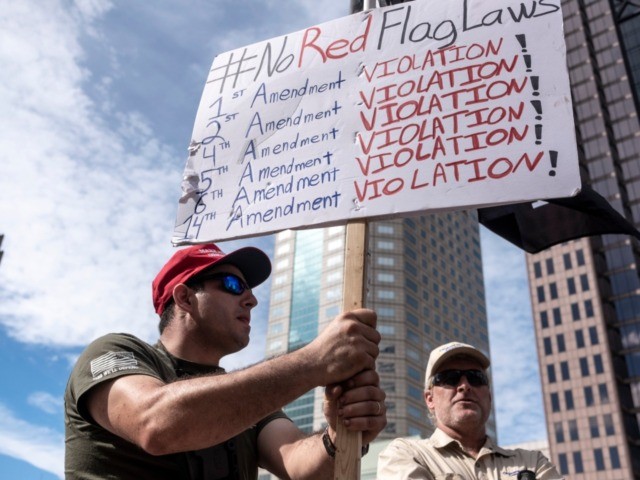Proponents of red flag laws in states or countrywide often assert that the laws protect targeted individuals’ due process rights. However, examining the exercise of the Florida red flag law in Broward County, Jacob Sullum provided in a Reason article last week plenty of reason to believe that judges have been implementing that red flag law by routinely rubber-stamping denying people’s right to possess guns while disregarding those individuals’ due process rights.
First off, Sullum looks at 255 police petitions under the red flag law to deprive individuals, for up to 14 days, of the legal ability to possess guns. In every instance, a judge quickly granted the gun-depriving order. All this occurs ex parte, meaning the targeted individual has no opportunity to present any argument on his own behalf. Sullum writes: “When police file such petitions, the respondent has no advance notice and no opportunity to rebut the allegations against him.”
Next up, police in Florida have the option of seeking a judge’s order to impose a much longer period the gun-deprivation. Targeted individuals fare little better at this second stage. Writes Sullum:
When police sought final orders, which they did in 93 percent of the cases, judges issued them 96 percent of the time in cases where the outcome was known. Final orders, which typically last a year and can be extended for another year, are supposed to be based on “clear and convincing evidence” that the respondent “poses a significant danger of causing personal injury” to himself or others. Theoretically, that test is much harder to satisfy than the “reasonable cause” standard for an ex parte order (although the threat no longer has to be “in the near future”). Yet respondents persuaded judges to restore their Second Amendment rights just 4 percent of the time.
Read Sullum’s article here.


